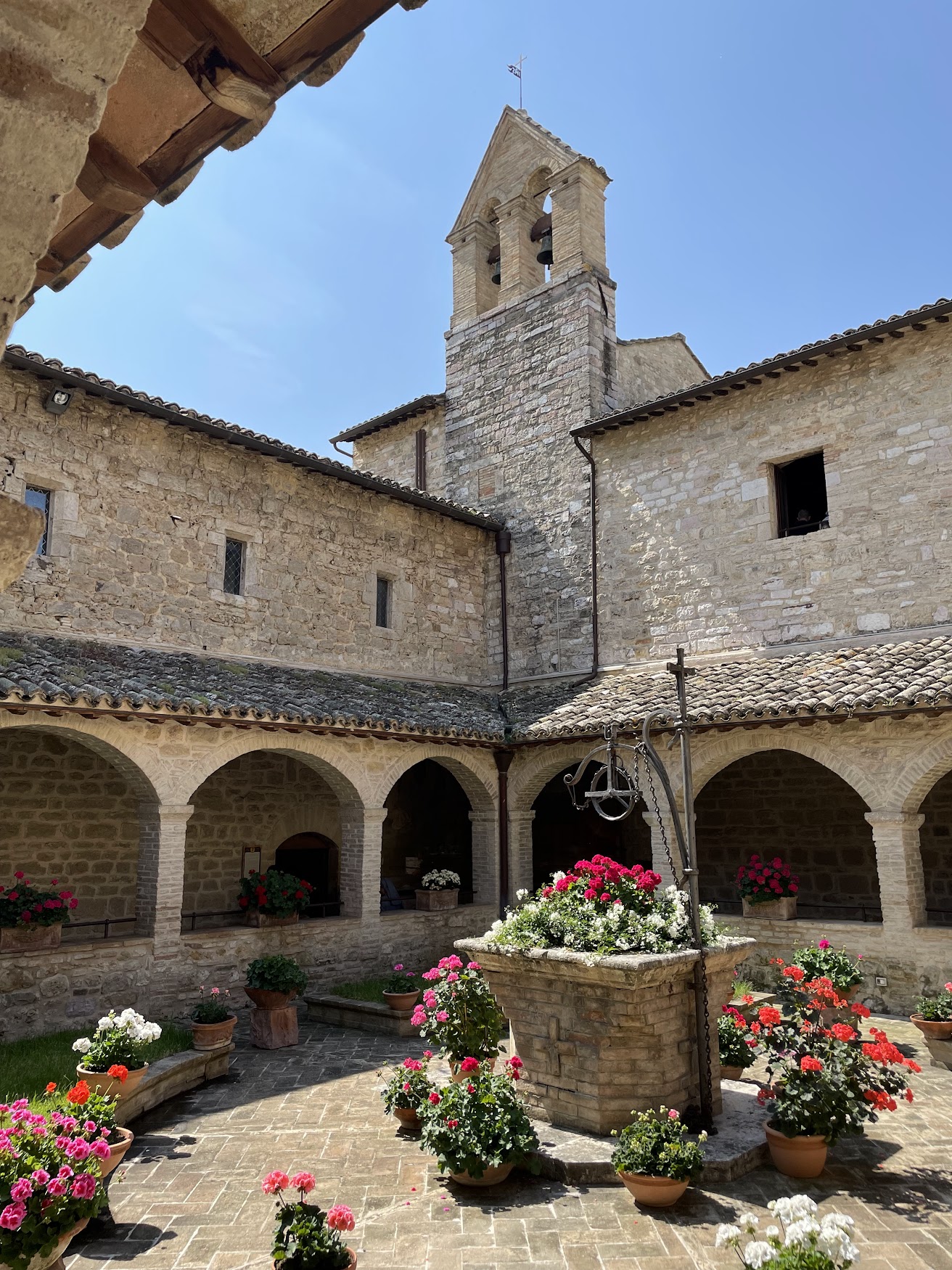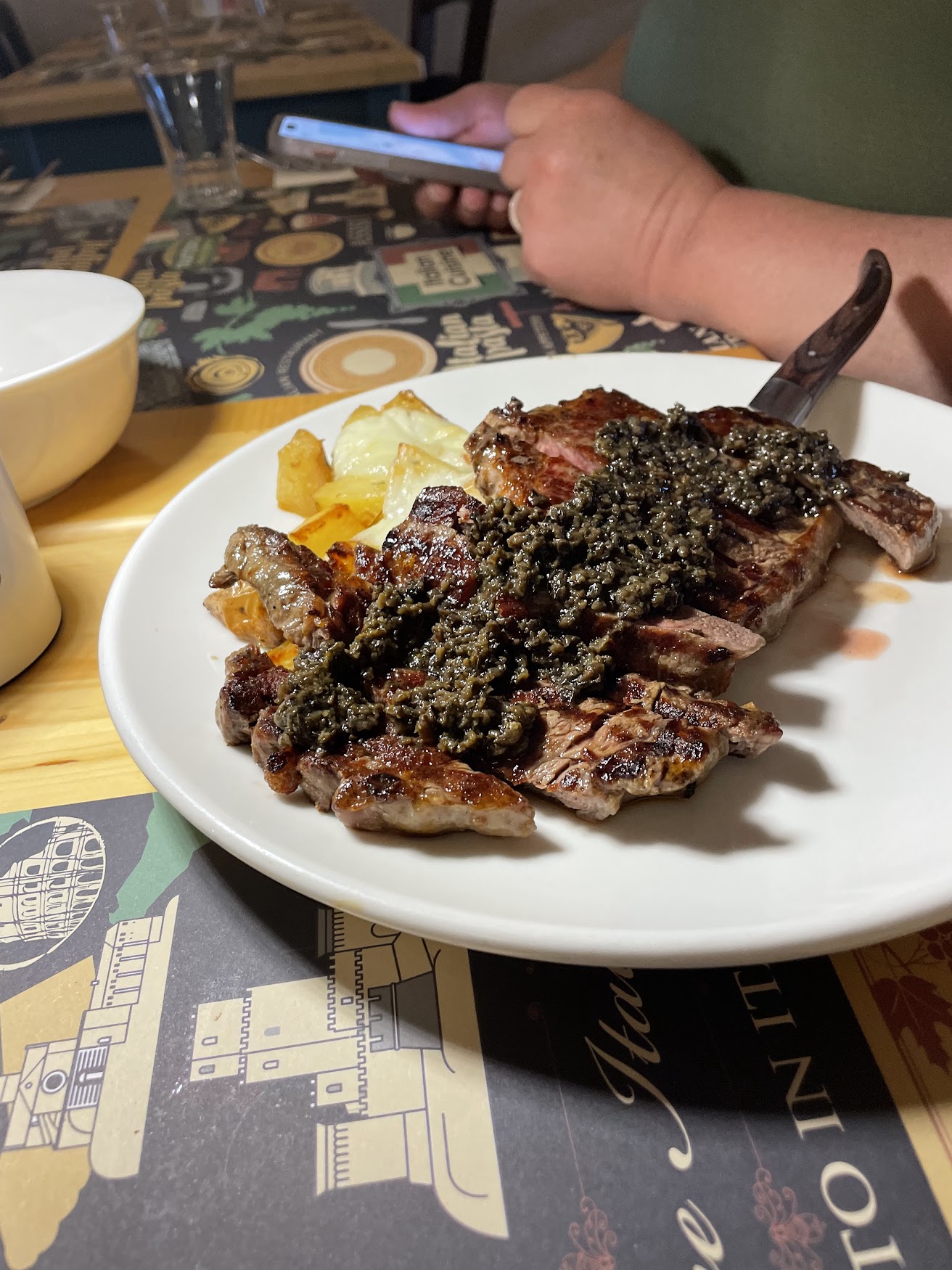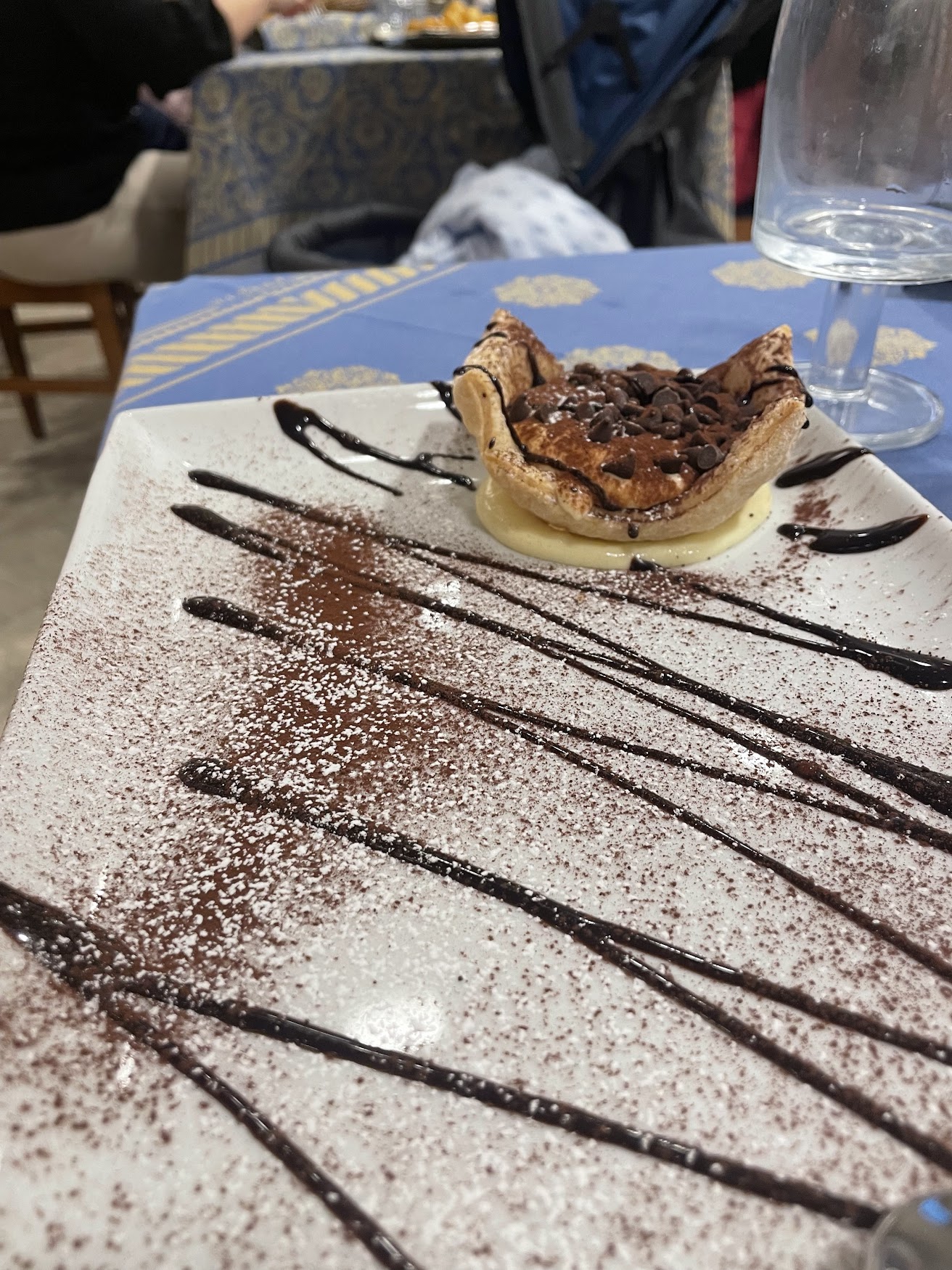Umbria might not be the breadbasket of Italy, some say Puglia gets the honor, but it is lush and fruitful. I’m guessing the tastiet dishes are in Rome and Tuscany. Regardless, I’m eating heartily enough. Man doesn’t live by bread alone, though, and every word that proceeds from the mouth of God is more nutritious than what I’ve been consuming. From time to time, God uses his saints to remind us of that, adding some spiritual salt to savor things up a bit.
In Assisi, Francis (of the 12th-13th century – the current Pope’s namesake) is celebrated for responding to the word of God and bringing something sweet and savory to the Christian world. It began with dreams and failed dreams. He never became a great knight, not in the way he intended, and he dreamed dreams in which he believed God was speaking to him.
An unknown voice once asked him in his slumber, “Who can do more good for you? The lord or the servant?” The answer was obvious and seeds were planted. The question is worth pondering. We know the answer, as did Francis. The lord can do more good for us than any servant. (Avoiding digression towards a discussion of Isaiah’s suffering servant.) But still we turn to servant things for satisfaction. Why we do that might be worth pondering too.
Later, as he was praying before the crucifix of San Damiano, Christ spoke to him from the cross. “Francis, go and repair my house, which you can see is falling into ruins.” So he did. He started literally restoring, brick by brick and stone by stone, chapels and churches in disrepair. He stole from his father’s line of fine cloths, his father was a prosperous cloth merchant, to pay for the venture. He would later come to believe the directive had greater implications and so he founded a movement to remind the church of what the church was to be about.
The Holy Scriptures would speak to Francis too. According to one story, having already embraced poverty, Francis made the sign of the cross over a volume of the gospels and began to open them randomly.
First, his finger fell on the story of the rich young man who couldn’t part with all his wealth. “If you want to be perfect, go, sell your possessions and give to the poor, and you will have treasure in heaven. Then come, follow me” (Matthew 19:21).
Next was the instruction to the disciples to travel light on their pending missionary endeavor. “Take nothing for the journey—no staff, no bag, no bread, no money, no extra shirt” (Luke 9:3).
Finally, came the reminder that to follow Christ is to follow in the way of the cross. “Whoever wants to be my disciple must deny themselves and take up their cross and follow me (Matthew 16:24).
The point, here at least, is not whether Christ actually spoke to him from the crucifix but that Francis believed it. The point pertinent to our purposes is not whether I agree with Francis’ approach to scripture but that he believed God was speaking directly to him.
At issue, I think, is obedience, whether or not we are willing to take up our cross and follow Jesus when he calls us. Will we say with the likes of the prophet Isaiah, “Here am I, Lord, send me”? Can we willingly drop our nets on the shore like the first disciples and follow Jesus? Will we cast aside our dreams, like Francis, and embrace a greater vision.
May we say, yes, and be the savor the world needs.
Below: A depiction of a dejected Francis, chivalrous dreams dying. The basilica where he is buried. The crucifix of San Damiano through which Francis believed Christ spoke to him (now hanging in the basilica of St. Clare). San Damiano. Good Food.










